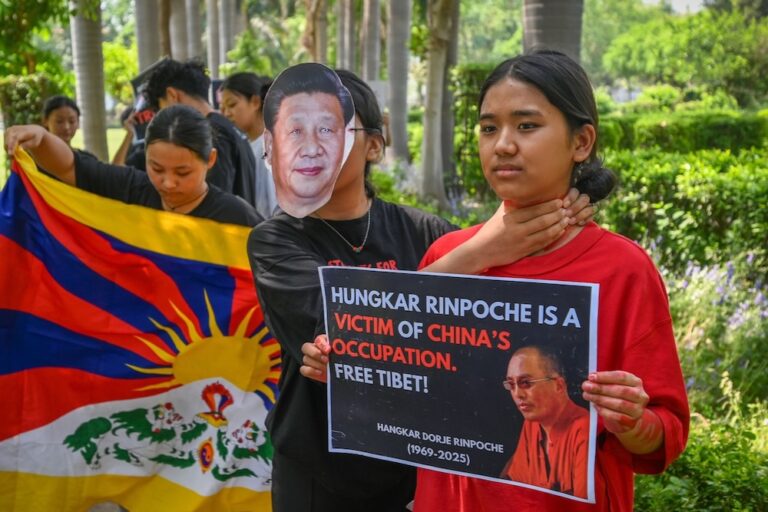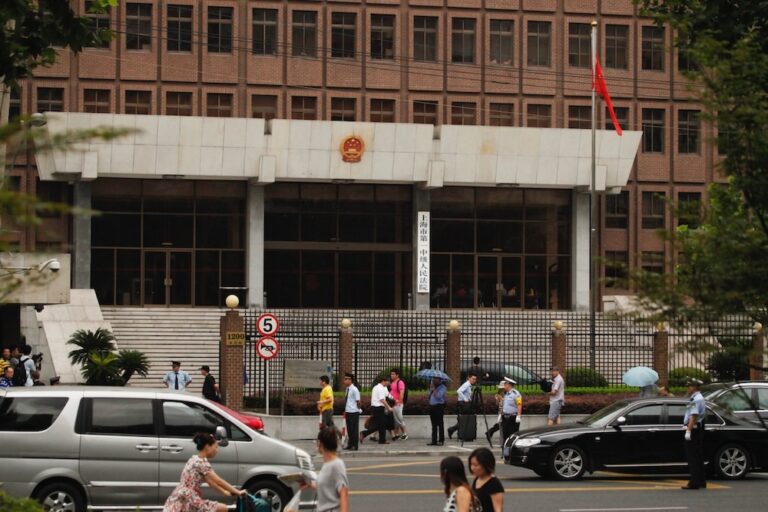Investigators recently uncovered the activities of Beijing's "dark PR" agencies, who take money from private companies to bribe Internet censors to delete unfavourable commentary on Chinese forums and microblogging sites.
(EFF/IFEX) – What happens when a country’s government censors the entirety of its domestic web, with no oversight or transparency? It turns out that politicians aren’t the only ones with an interest in repressing free expression – and given a lever of control, a black market of censors quickly emerges.
A group of investigators from Chinese magazine Caixin recently uncovered the activities of Beijing’s “dark PR” agencies, who take money from private companies to bribe Internet censors to delete unfavourable commentary on Chinese forums and microblogging sites, using the infrastructure that the Chinese authorities have built for political censorship.
Every major Internet platform in China, including local microblogging, social networking sites, and search engines, has a team taking orders from the China’s government Internet overseers and who remove any user commentary that clashes with the censors’ edicts. An example of the (often vague and informal) instructions that publishers and Internet companies receive in China is last month’s prohibitions on stories covering a banker’s property speculation, and mentions of a newly translated biography of Deng Xioping by Ezra Vogel.
According to Caixin, China’s private censors have been taking their orders from more than just the official Net overseers. They have also been taking money on the side from those wanting negative publicity about their products or affairs to vanish.
The chief dark PR agency doing this work was Yage Time, founded by a former Baidu employee Gu Dengda, who used his knowledge of the search engine’s complaints procedure into a 50 million yuan business. Clients for Yage Time included Pizza Hut and Japanese restaurant chain Yoshinoya. Others billed themselves as “crisis public relations” groups, and openly offered to remove offending content.
Under Gu, private and public censorship ended up mixing in fascinating new combinations of corruption. A former Yage Time employee told Caixin that 60% of the company’s business was from minor government functionaries, desperately seeking to erase local whistleblowing reports from higher officials. The state-run news portal Quianlong.com, meanwhile, is said to have profited from publishing deliberately negative reports on companies, and then taking money from Yage Time to have them deleted. At one point, Yage had a contract to both supply business content to the state propaganda outlet, and access to delete the same articles.
Corruption is a recurring problem in China, exacerbated by the tight restrictions the Chinese government places on whistleblowing and public exposure of the problem. But Internet censorship places insuperable challenges on those seeking to ensure due process and checks and balances. By government mandate or industry self-regulation, social democracy or repressive regime, all Net censors refuse to release their blacklists. In Thailand to Australia and the United Kingdom, countries and companies that filter the Internet say they cannot show what they are doing, as the list of URLs and services they block is also a map of showing the very content they are seeking to hide.
This is just one of the many reasons why EFF stands so firmly against government censorship of the Internet in all its forms. No matter its original intent, wiring such powerful tools into the infrastructure of the Net, with no transparency possible, is asking for trouble. Commercially-motivated takedown systems can become political censorship. Politically-motivated censorship becomes commercial censorship.
Caixin reported on Gu’s activities after he and at least ten other freelance censors had been arrested for charges including bribery. The company’s activities had been widely known before then, including a TV expose in 2010 which served to boost the company’s business. Caixin seems to have believed that the months since Gu’s arrest would make it acceptable to report on such corruption. Apparently not: while the magazine’s English translation remains available, the Chinese version of the report was deleted within hours of its appearance.


